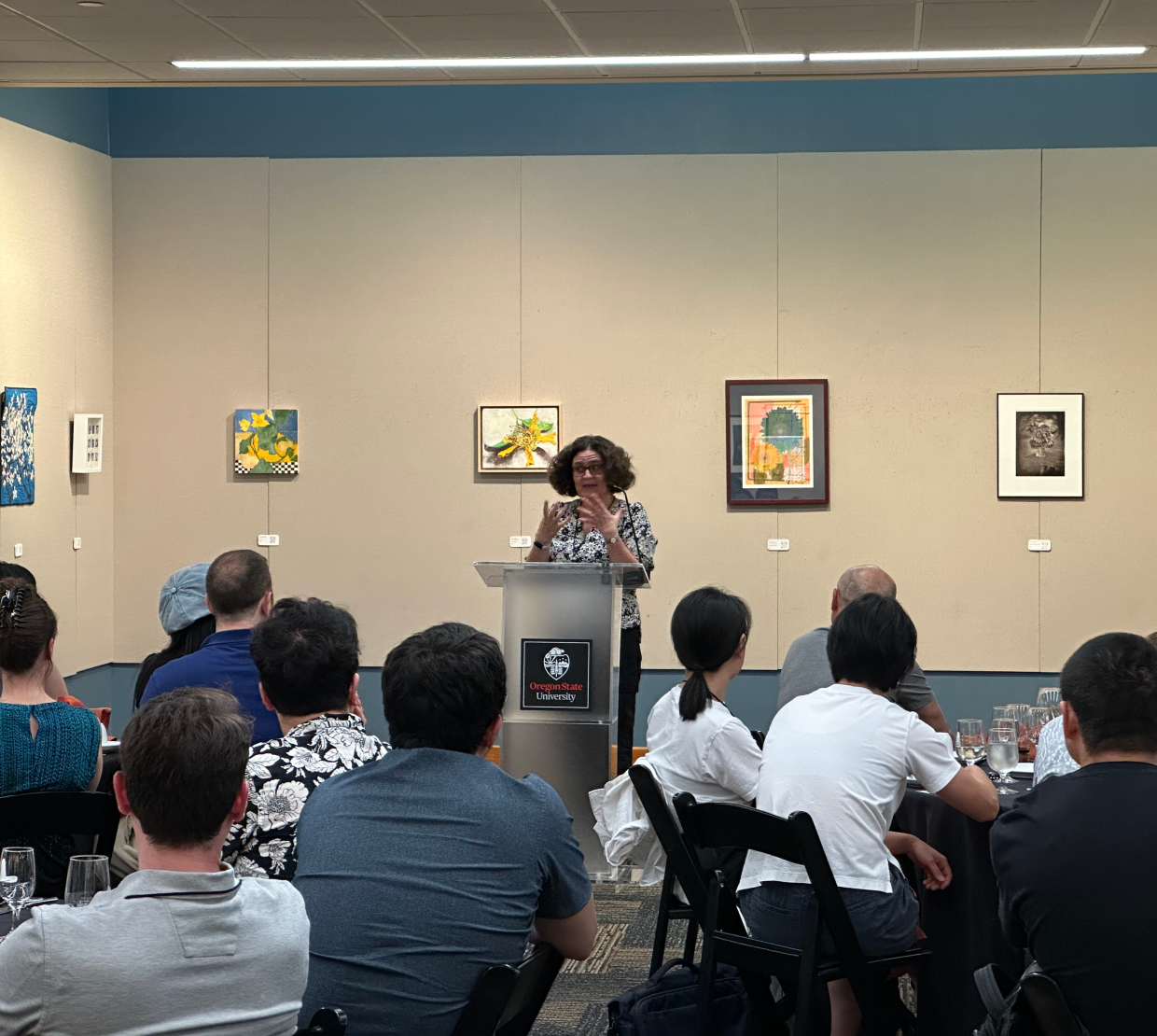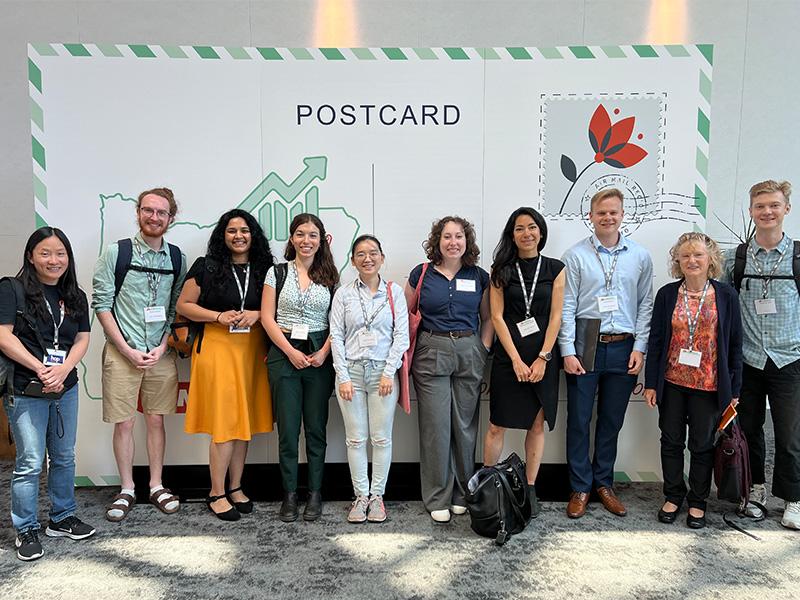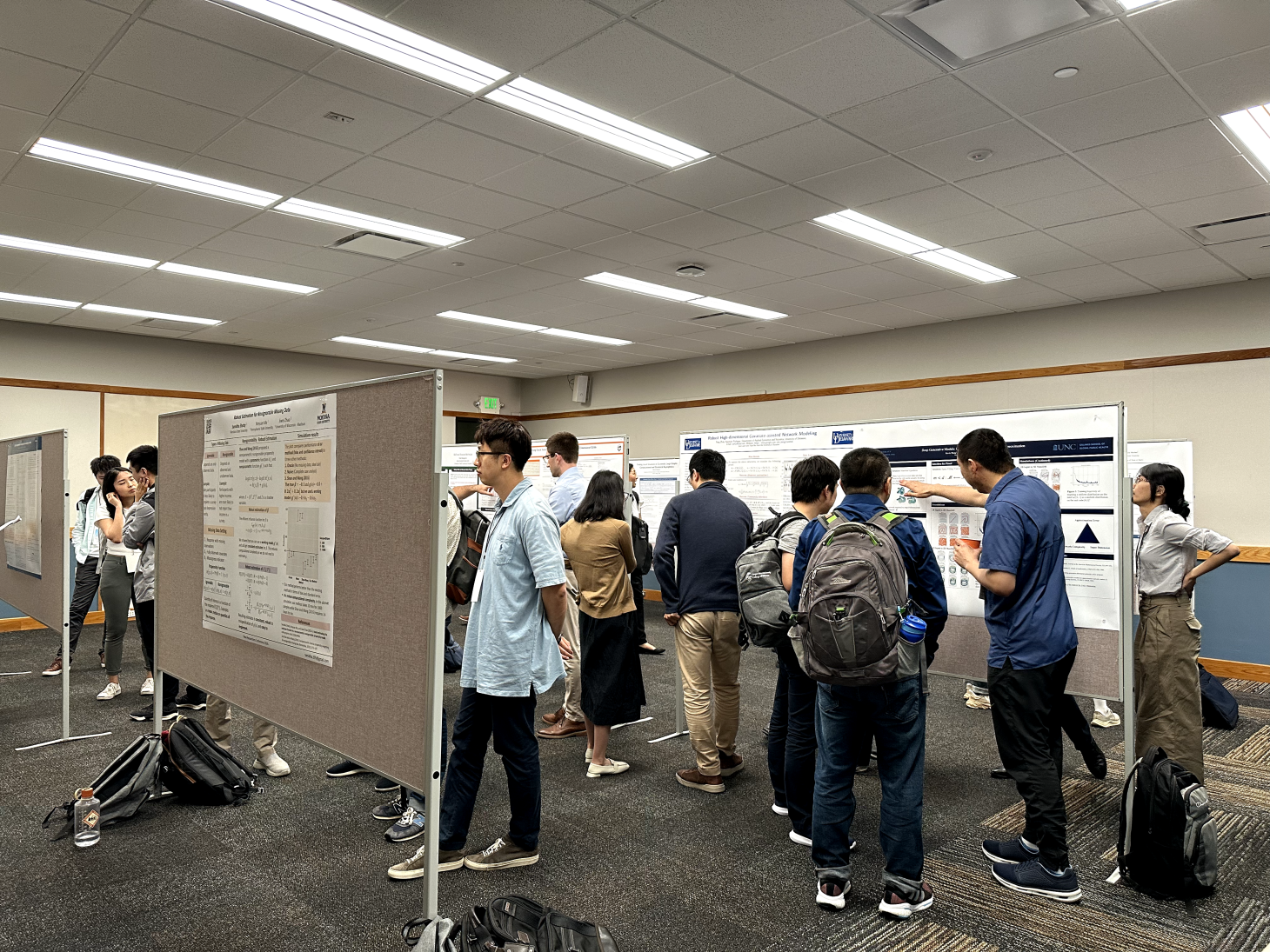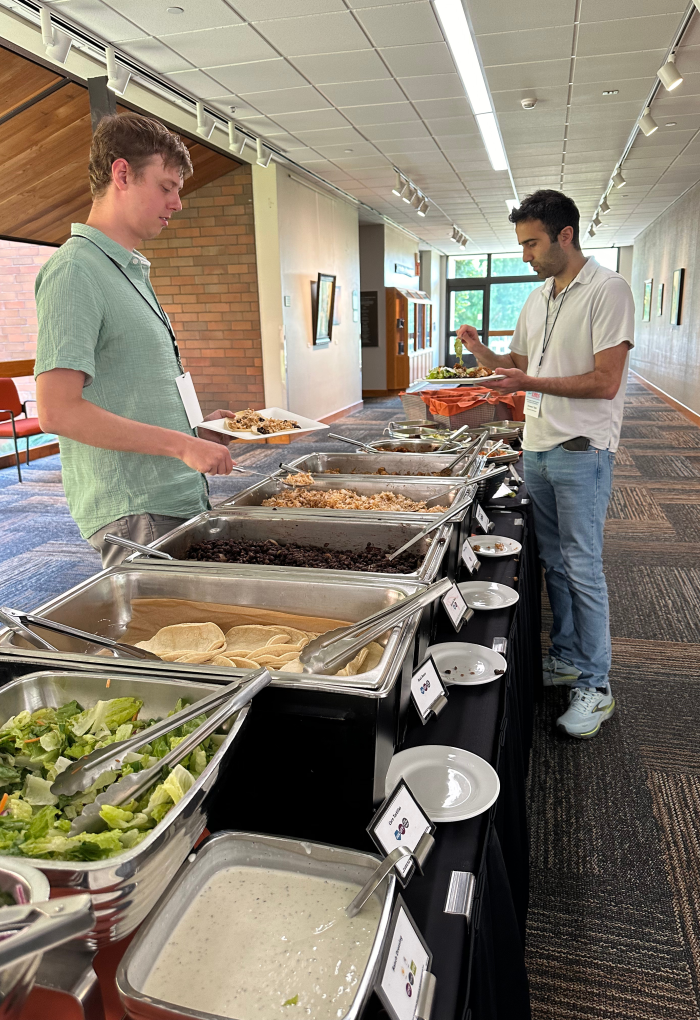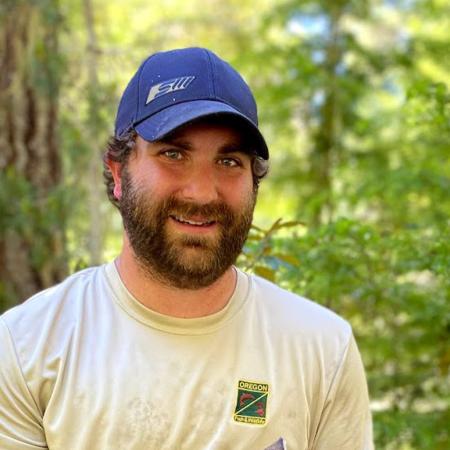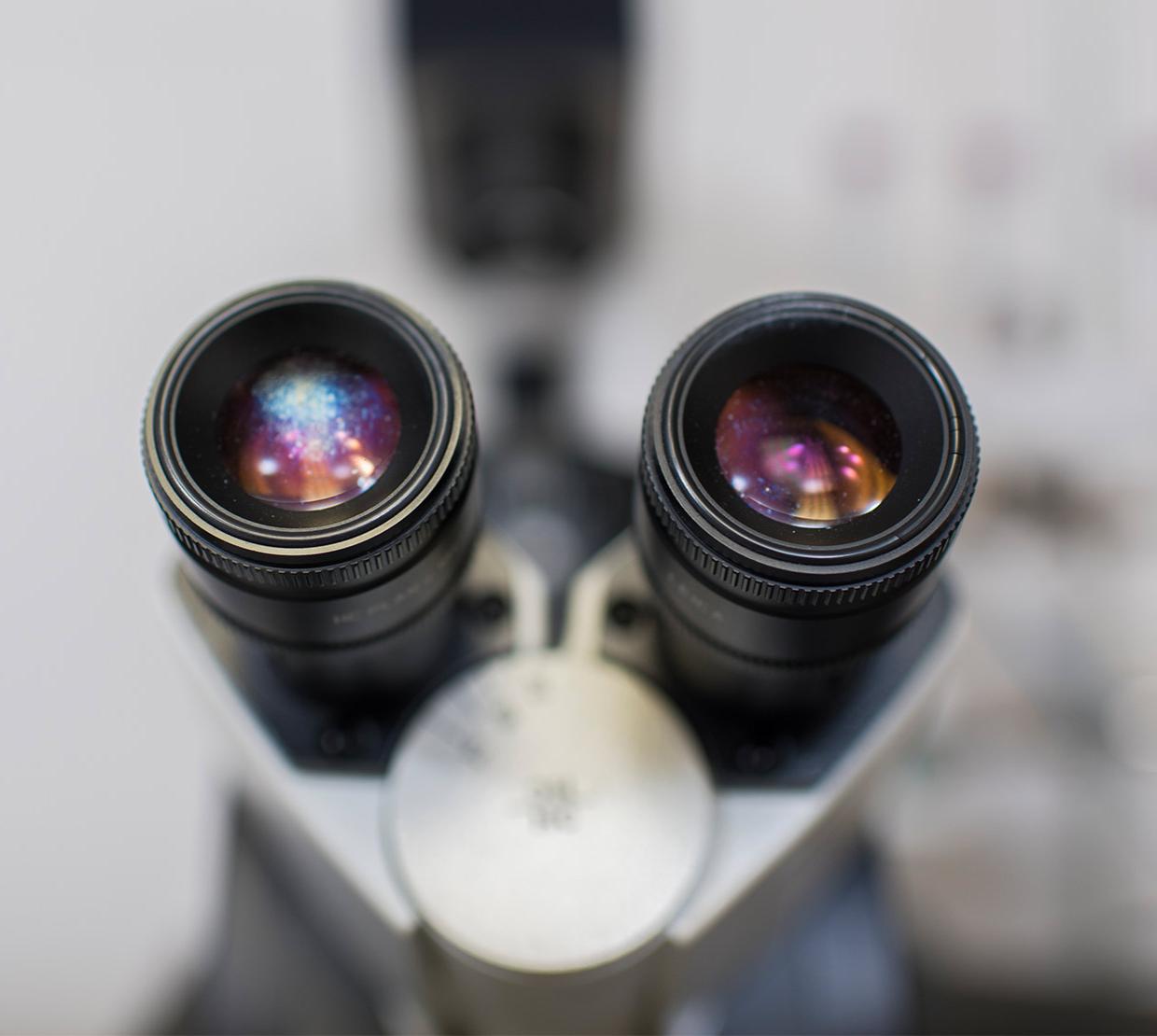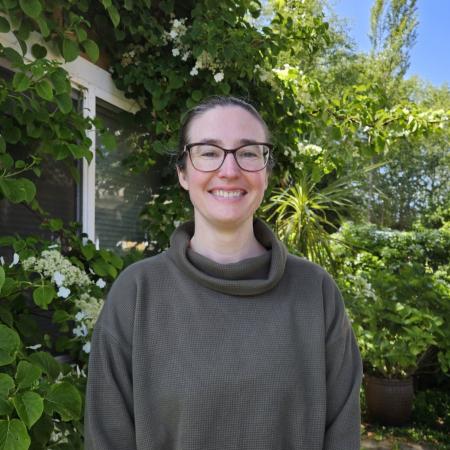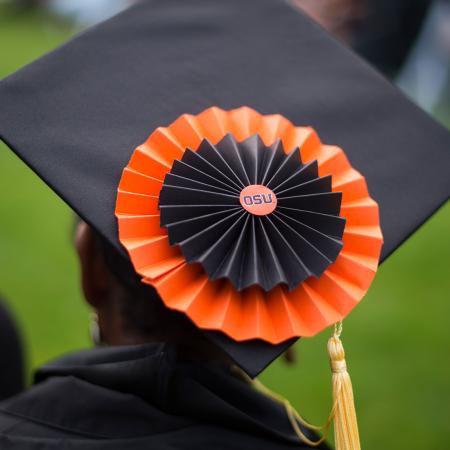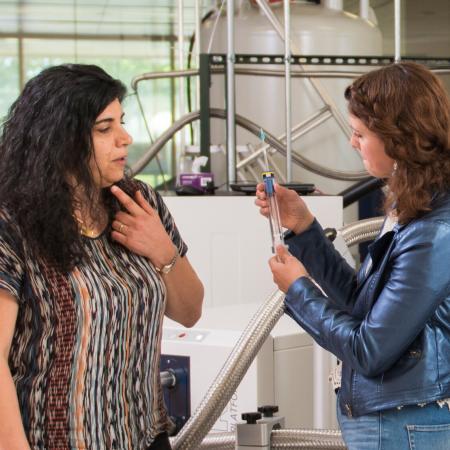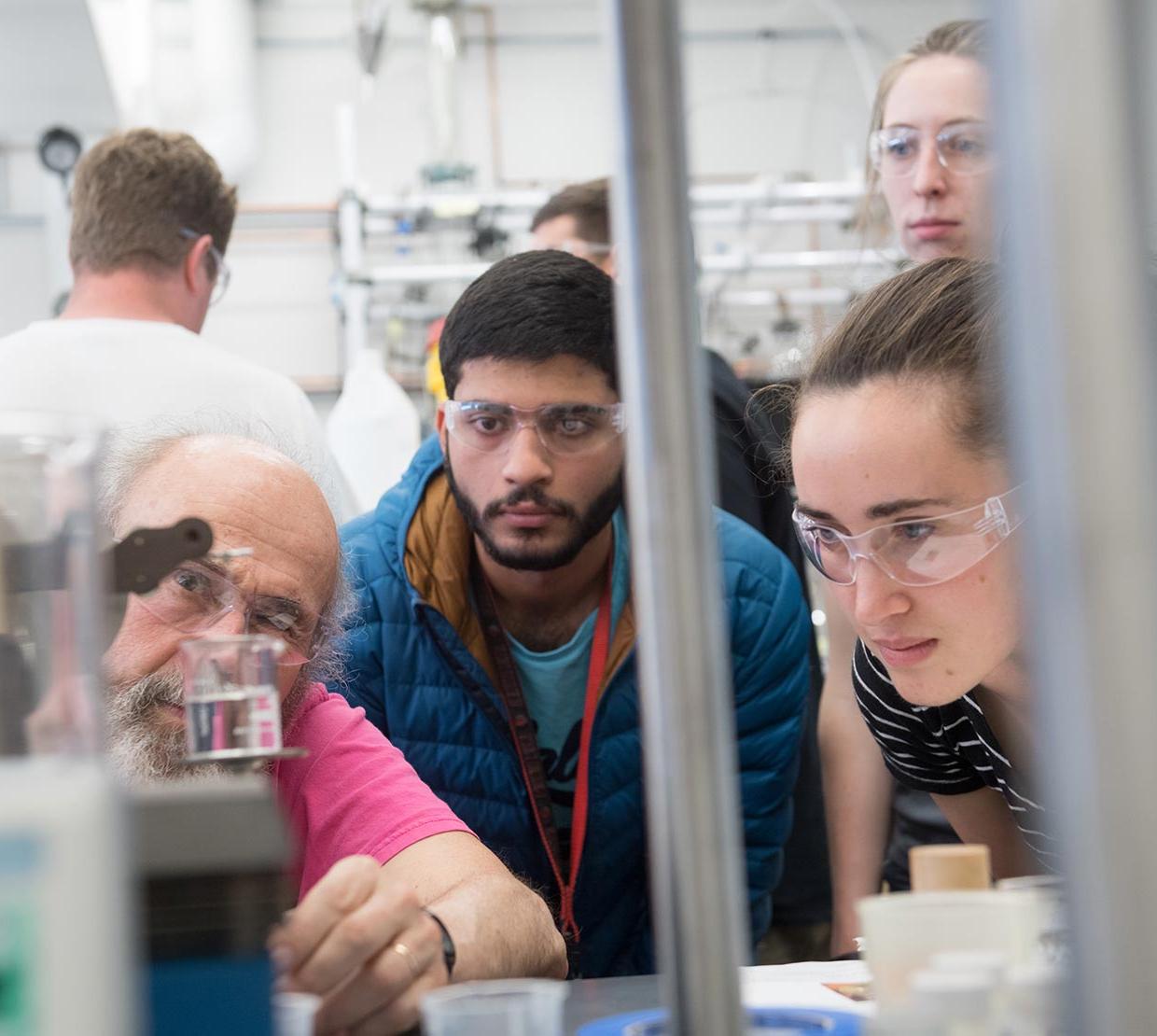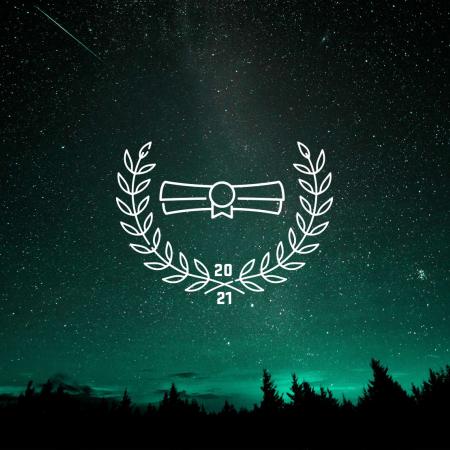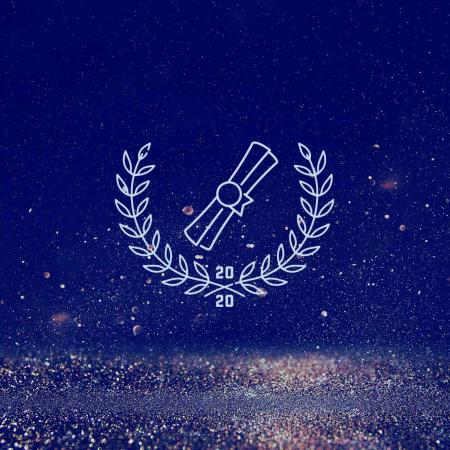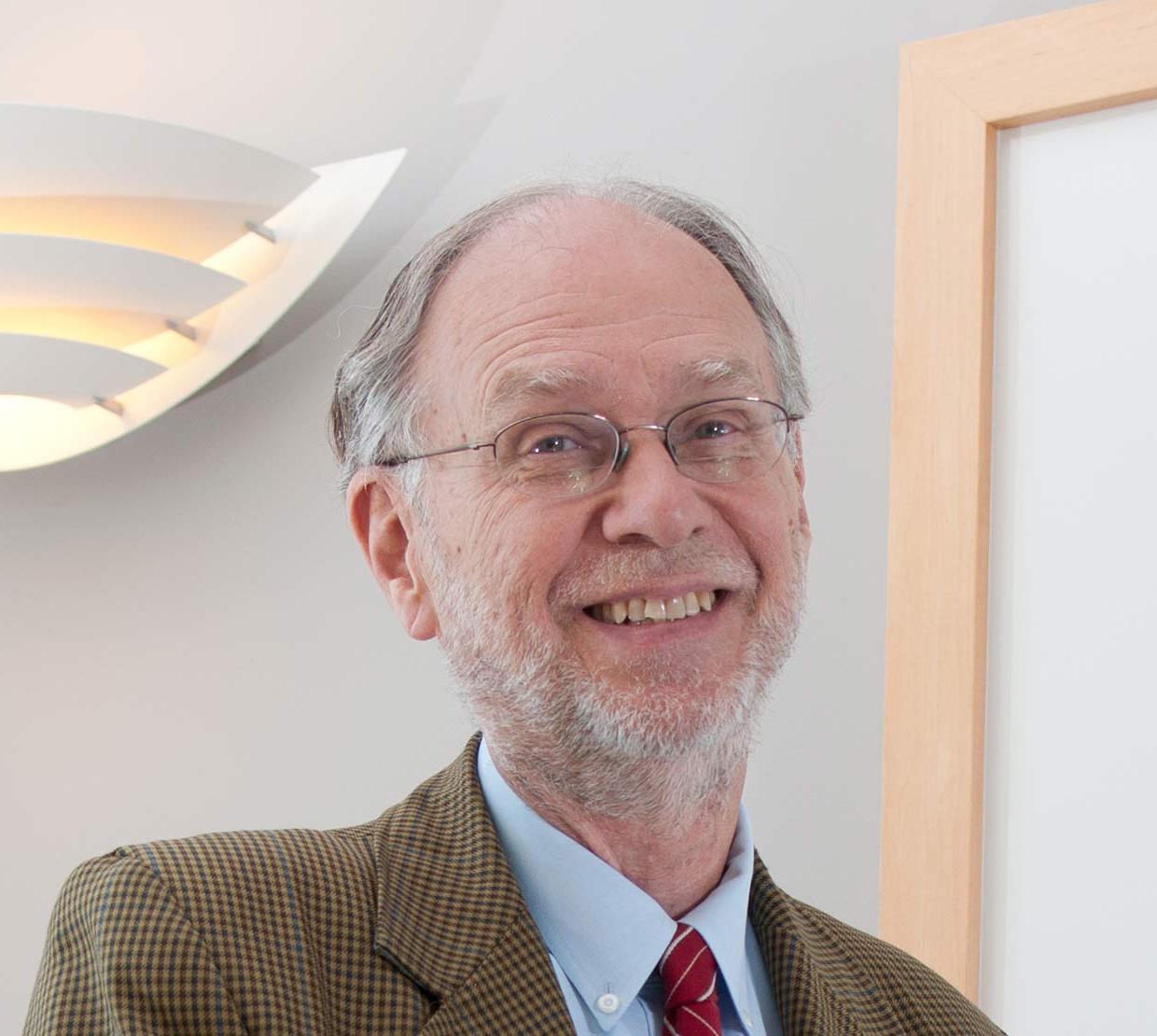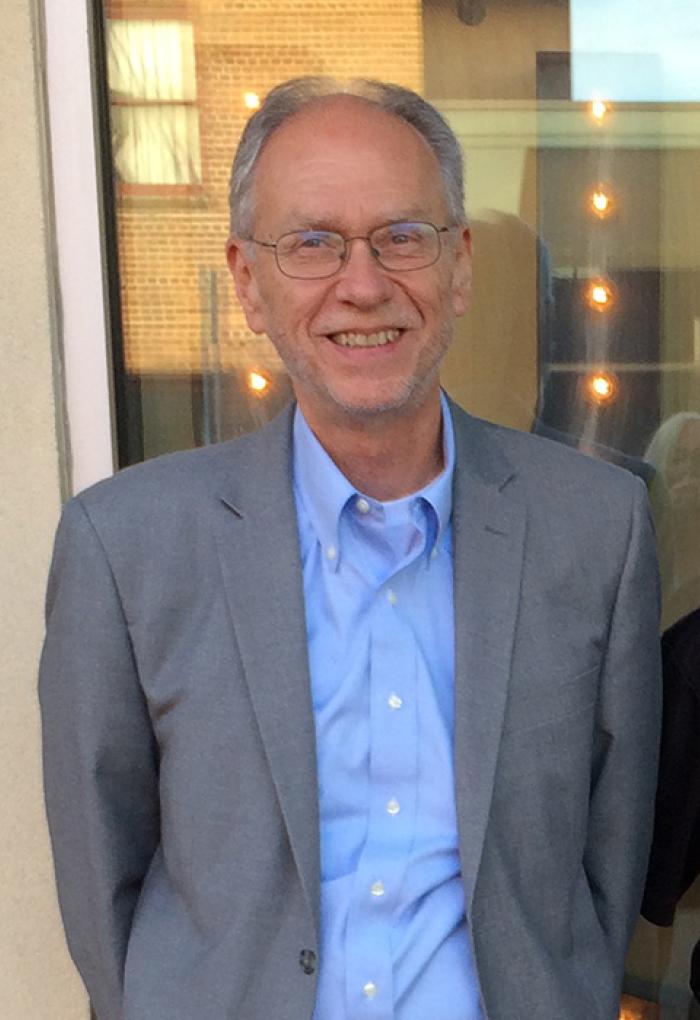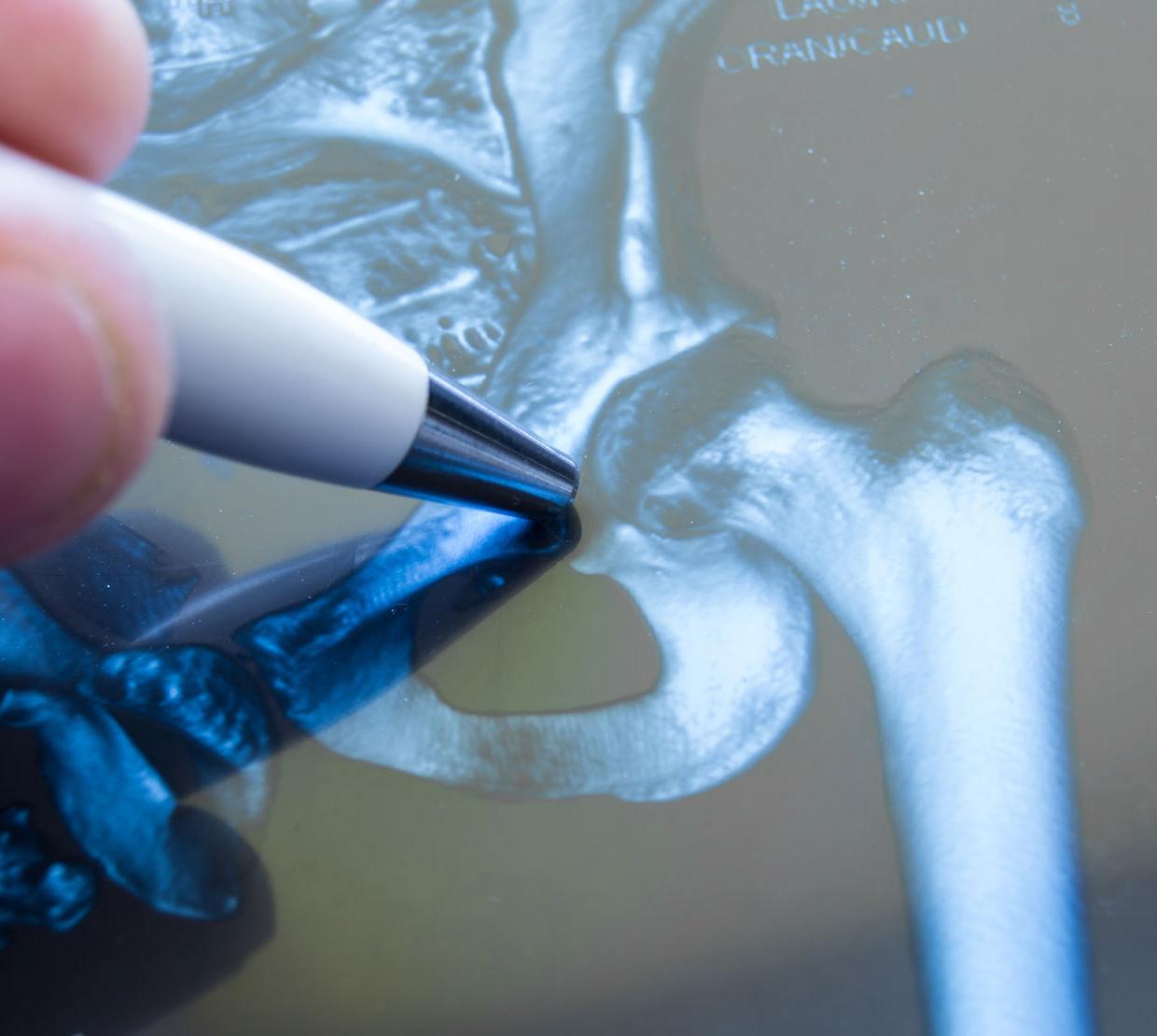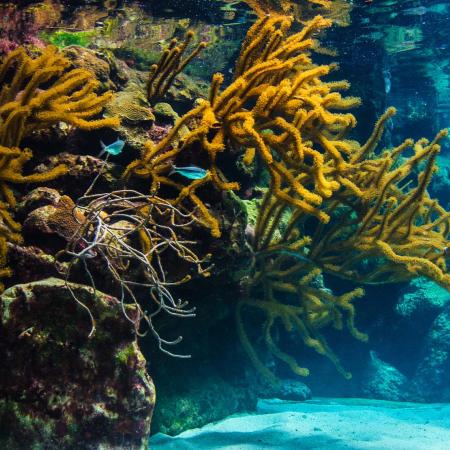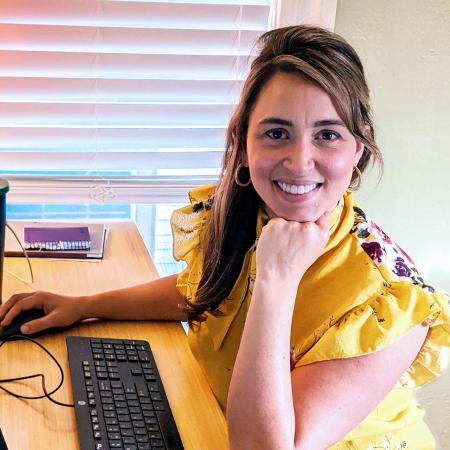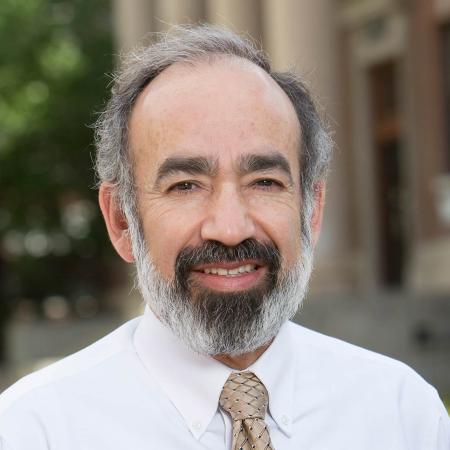As a land grant institution committed to teaching, research, and outreach and engagement, Oregon State University promotes economic, social, cultural, and environmental progress for the people of Oregon, the nation, and the world. Oregon State University is deeply committed to the principle that every student we admit — in person or online — should achieve their goal to graduate, and awards of Scholarships and Fellowships contribute to this goal in an impactful way. The College of Science invests in the success of our graduate scholars by providing financial support to students that we recruit and students that are currently enrolled among other ways of supporting their development, progress and growth.
Graduate students in the College of Science earned notable recognition during the 2023-24 academic year, receiving a range of awards which highlight their achievements and contributions to Oregon State. Below, we highlight some of these noteworthy Graduate School Awards. From state specific honors like the ARCS Foundation Scholarship to institutional support through the Provost’s Distinguished Fellowship, these awards recognize graduate students who embody the values of Team Science.
ARCS Foundation Awards
ARCS (Achievement Rewards for College Scientists) Foundation, Oregon Chapter seeks to advance science and technology in the United States by providing financial awards to academically outstanding students who are U.S. students studying to complete Ph.D. degrees in science, engineering, mathematics, technology and medical research at Oregon Health & Science University, Oregon State University and the University of Oregon.
In 2023-2024, two College of Science graduate students were awarded ARCS scholarships. Karlie Wiese, doctoral student in Chemistry, received the ARCS Oregon 10th Anniversary OSU Scholar Award. Lucas Kolanz, doctoral student in Physics, received the Beth Ray ARCS Foundation Scholar Award. This award is funded through ARCS, the OSU Graduate School and by contributions from past OSU President Ed Ray in memory of his wife Beth.
Delson Bridge to the Future Fund
Pritha Biswas, doctoral student in Physics, is the recipient of the Delson Bridge to the Future Fund, designed to assist graduate students who are facing critical financial emergencies that could impede degree completion.
Dissertation Completion Award
Two doctoral students were awarded the Dissertation Completion Award. This award supports outstanding doctoral students who are in their final stages of their dissertations by offering an award to cover the cost of three graduate credits of tuition and mandatory fees for one academic term. The recipients are Adaline De Chenne from Mathematics and Njesa Totty from Statistics.
Graduate Dean’s Catalyst Fellowship
Two doctoral students, Theodore Bambakidis (Microbiology) and Jesse Howe (Biochemistry and Biophysics) were awarded the Graduate Dean’s Catalyst Fellowship. This award is a pilot program launched for the 2023-24 academic year to support graduate students nearing completion of their doctoral degrees.
Herbert F. Frolander Graduate Teaching Assistant Award
Steven Tran (Chemistry) received the Herbert F. Frolander Graduate Teaching Assistant Award, which recognizes outstanding and professional involvement with both faculty and students by a graduate teaching assistant at Oregon State University. This award is presented to one graduate student from across the entire university during University Day in the fall. Hear from faculty and staff who nominated Tran here.
Laurels Block Grant Program
The purpose of Laurels funding is to provide financial support to academic units so they may diversify and strengthen their graduate programs. This is achieved by providing tuition support to assist with the recruitment of new graduate students to OSU. Two College of Science students received funding in 2023-24, masters student Bailey Sharon (Mathematics) and doctoral student Courtney Clement (Microbiology).
Oregon Lottery Graduate Scholarship
Three doctoral students received funding from the Oregon Lottery Graduate Scholarship. Funds for this scholarship are provided through the Oregon State Lottery and are awarded on the basis of academic merit and financial need. The 2023-24 recipients are Matthew Nguyen (Chemistry), Steven Tran (Chemistry) and Kaitlin McHugh (Integrative Biology).
P.F. and Nellie Buck Yerex Graduate Scholarship
Nilanjana Das, masters student in Microbiology, is the recipient of the P.F. and Nellie Buck Yerex Graduate Scholarship. This scholarship is awarded to graduate students who are pursuing study in a scientific or technological field. It is awarded on the basis of academic achievement and promise for the future.
Prestigious Diversity Fellowship
Two doctoral students received the Prestigious Diversity Fellowship, intended to support the recruitment and retention of graduate students from historically underrepresented backgrounds who demonstrate scholarly promise at Oregon State. The recipients are Hallee Boyd (Chemistry) and Nyazia Sajdah-Bey (Integrative Biology).
Professional Development Award
The purpose of the Professional Development Award is to help cover costs for qualifying training, resources and activities that contribute to professional skills development. In 2023-24, the Graduate School funded the following students:
Alice Welch (Integrative Biology)
Olivia Burleigh (Integrative Biology)
Emily Taylor (Integrative Biology)
Pritha Biswas (Physics)
Kevin Dimmitt (Physics)
Provost’s Distinguished Graduate Fellowships and Scholarships
The purpose of the Provost’s Distinguished Fellowship and Scholarship program is to support programs in the recruitment of Oregon State’s most meritorious graduate students.Ian Clifford (Integrative biology) and Ben Daniels (Microbiology) received the distinguished Provost Fellowship award.
In 2023-24, the College of Science awarded Provost Scholarships to the following students:
Joline Nguyen (Biochemistry and Biophysics)
Emily Hiatt (Chemistry)
Sanpreet Hira (Chemistry)
Jack McLaughlin (Chemistry)
Gage Rios (Chemistry)
Rodrigo De Almeida Alves (Integrative Biology)
Brysyn Goodson (Integrative Biology)
Olivia Noonan (Integrative Biology)
Stefanie Fazekas (Mathematics)
Heather Fogarty (Mathematics)
Mansi Sanjay Mahajan (Mathematics)
Courtney Clement (Microbiology)
Lynn Kaneko (Microbiology)
Katelyn Spadavecchia (Physics)
Kalista Wayt (Physics)
Ian Moran (Statistics)
Scholarly Presentation Award
The Graduate School offers the Scholarly Presentation Award to provide graduate students with financial support to assist with certain costs associated with presenting their scholarly work at academic conferences and meetings. In 2023-24, the following College of Science students received this award:
Mona Khorani (Chemistry)
Nan-Chieh Chiu (Chemistry)
Anshika Nagar (Chemistry)
Ankit Yadav (Chemistry)
Jesse Laney (Integrative Biology)
Angelika Kurthen (Integrative Biology)
Jun Cai (Integrative Biology)
Erick White (Integrative Biology)
Jalyn Devereaux (Integrative Biology)
Jared Freedman (Integrative Biology)
Jesse Fritz (Integrative Biology)
Dorothy Zahor (Integrative Biology)
Jessica Karr (Integrative Biology)
Giovanni Crestani (Integrative Biology)
Kaitlin McHugh (Integrative Biology)
Kenneth Glynn (Integrative Biology)
Jazlee Joon Crowley (Integrative Biology)
Brenna Prevelige (Integrative Biology)
Jeremy Lilly (Mathematics)
Måns Mattsson (Physics)
Thurgood Marshall Graduate Fellowship
The Thurgood Marshall Graduate Fellowship is intended to support the retention of meritorious graduate students whose accomplishments and activities demonstrate leadership, service and commitment to fostering a just and equitable community. Val Sawiccy (Integrative Biology), currently an instructor at the University of Oregon, is this year’s recipient.
Wei Family Private Foundation Scholarship
The Wei Family Private Foundation, a non-profit organization, was established to honor the memory of Dr. (Mrs.) Chung Kwai Lui Wei and Mr. Hsin Hsu Wei. Its purpose is to award scholarship grants to students of Chinese heritage with high academic credentials who are pursuing a degree in Science or Mathematics at Oregon State University or an Electrical Engineering graduate degree. In 2023-2024, the College of Science awarded three Wei Family scholarships to Ian Clifford (Integrative Biology), Ben Daniels (Microbiology) and Ifeoma Nwabufo (Mathematics).
Mark and Vicki Hehnen Veterans Science Scholarship
The Mark and Vicki Hehnen Veterans Science Scholarship supports science students who are veterans and provides financial support other than tuition. This award was established by Mark Hehnen (’78 Ph.D.). In 2023-2024, the College of Science awarded two scholarships to Ebony Stretch (Microbiology) and Angela Mellisa Thompson (Zoology).
Jesse A Hanson General Science Scholarship
The Jesse A Hanson General Science Scholarship is awarded to students who show high scholarship, potential for success, unimpeachable character and service to the university. Jesse Hanson was an OSU professor of poultry science from 1911-66. The following four students received this scholarship during the 2023-2024 academic year: Joshua Byrnes (Statistics), Jessica Etter (Chemistry), Elena Gasiorowski (Integrative Biology), and Mikaela Lee (Microbiology).
Fred W. Durbin and Helen E. Bette Pierce Durbin Endowment
Created by Fred and Helen “Bette” Durbin, this endowment supports graduate fellowships as determined by the Dean. Fred received a bachelor’s in general science from OSU and Bette graduated with a bachelor’s in home economics (now the College of Health). The College of Science awarded two Fred and Helen Durbin Scholarships to Ameh Benson Agi (Chemistry) and Jonathan Dutra (Biochemistry/Biophysics).
Science Graduate Fellowship
The Science Graduate Fellowship is to be used to support students enrolled in the College of Science with a preference for students in chemistry, biochemistry and the life sciences. The College of Science awarded one Science Graduate Fellowship during the 2023-2024 academic year to Emily Parker (Integrative Biology).
*When possible, links to students' directory profiles are included.
